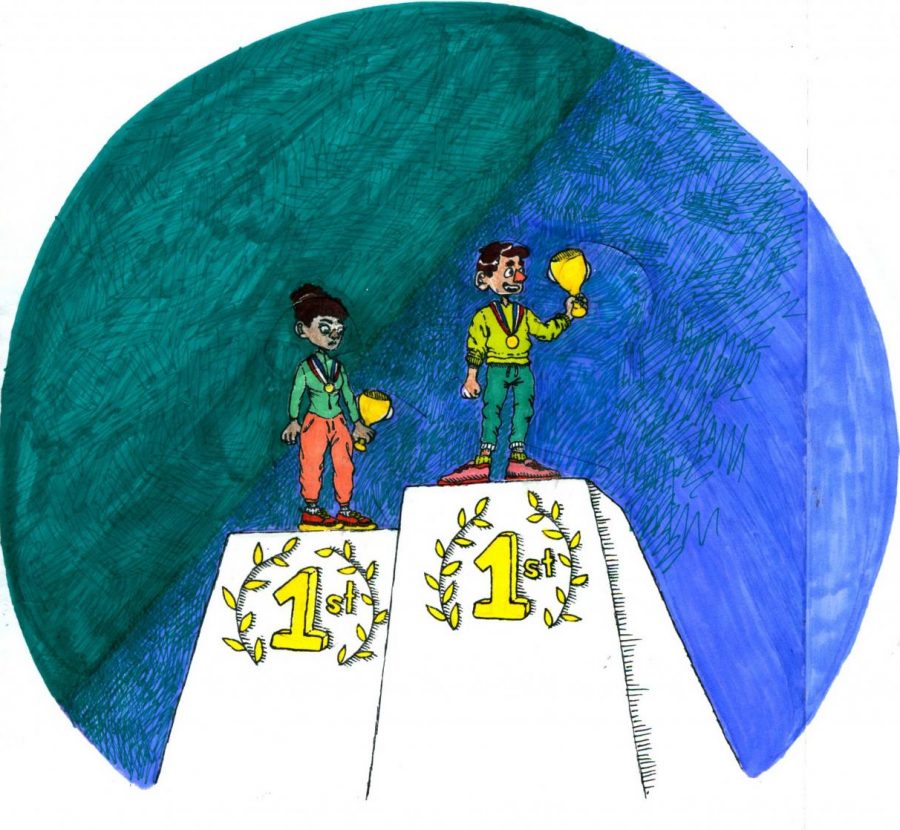Addressing Inequality in Athletic Environments
January 30, 2018
Here at Rindge, athletics are an essential part of our community. Joining a sports team gives students the opportunity to develop a sense of self-confidence while having a strong support system from teammates. However, it is clear that there is sexism in sports. Having been a female soccer and hockey player here at Rindge for three years, I have experienced this firsthand.
As uplifting as sports can be, experiencing the sexism that is present in athletics can trigger an immensely degrading feeling. One issue that has been widely discussed amongst female athletes here at CRLS is how male athletes are allowed to play shirtless at some sports practices, but female athletes are not allowed to practice shirtless with a sports bra, or even in tank tops.
During practice, female athletes work tirelessly to better themselves and excel physically. Practicing in hot conditions is not out of the ordinary, especially during fall sports that begin at the end of August. When girls have asked to practice in a sports bra in skyrocketing temperatures, they’re denied this request. I personally saw this during soccer season these last two years.
One of the rules that the girls soccer program enforces is the fact that girls have to practice in short-sleeve t-shirts and are not allowed to wear tank tops. While the boys have been allowed to practice without shirts during intense workouts, such as running, the girls are not even allowed to play in tank tops.
We should not be teaching girls to cover up their skin because it is “indecent.” A girl exercising without a shirt is not sexual unless it is made sexual by those around her.
Another pressing issue within athletics is fan turnout. Although this can be considered a problem for both boys and girls teams, especially in high school, the lack of support from members within the community can affect girls more extensively in sports later on.
It is evident within our society that male sports receive more attention than female sports. From the NFL to the NBA, millions of fans stream male-based sports events during their seasons, but it is not often you find people watching a female team on television in professional leagues.
This begins in high school; if there are not supporters that show up to female sports events, this affects female athletes and their salary when they get to the professional level. At Rindge, we need to break this cycle and start showing support for all of our teams. In order for feminist ideals to be implemented in professional sports, we need to incorporate ideals of equality in high school athletics, which will improve the equality within professional sports for female athletes.
At CRLS, the community strives to promote equality for girls, whether it be by providing free menstrual hygiene products in bathrooms or updating the dress code. However, it’s clear that there are imperfections in the CRLS athletic community concerning sexism. Promoting girls in sports here at Rindge is simple. Whether showing up to a sporting event, signing up for fan buses, or even making a sign to support the girls, we need to show our female athletes that their athletic achievements are just as valid as the guys’.
This piece also appears in our January print edition.










